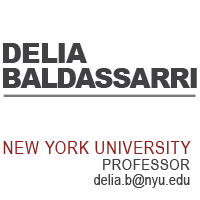CLICK HERE TO RETURN TO ARTICLES
D. Baldassarri, “Generalized or Parochial Altruism? Evidence from a Nationwide Lost-Letter Experiment”, under review.
ABSTRACT: What explains variation in levels of prosocial behavior across communities? And what is the relationship between ingroup and outgroup prosociality? According to theories of generalized altruism, market integration should lead to greater levels of prosociality: Market exchange forces people to interact with unknown others, thus creating the conditions for the extension of prosocial behavior beyond close-knit circles to include outgroup members and strangers. In contrast, according to the parochial altruism approach, norms of solidarity are confined within the group and do not extend to outgroup members: In-group favoritism, and possibly out-group hostility, should lead to systematic differences in the way individuals are treated. The current study takes advantage of an ideal setting to test both hypotheses. It reports results from the first, nationally representative lost-letter experiment in which 5,980 letters were dispersed in a sample of 188 Italian communities. The study confirms the primacy of market integration in accounting for differences in levels of prosociality: in areas where market exchange is dominant return rates are high, and, in general, return rates for both in and outgroup recipients move hand-in-hand. The generalized altruism approach is thus supported, while there is no evidence in favor of the parochial altruism hypothesis: return rates for in and outgroup recipients are the same, they vary together, and ingroup returns are highly predictive of outgroup returns at the community level.
+ Contact Me at delia.b@nyu.edu for a Copy
